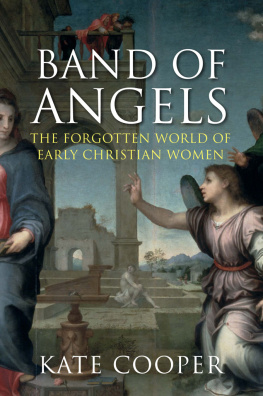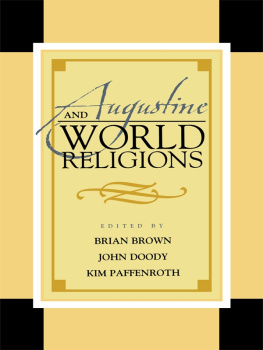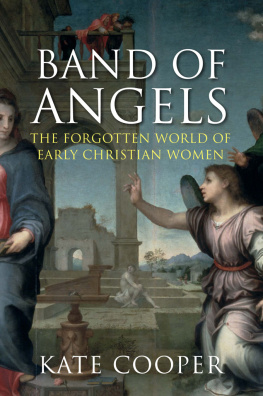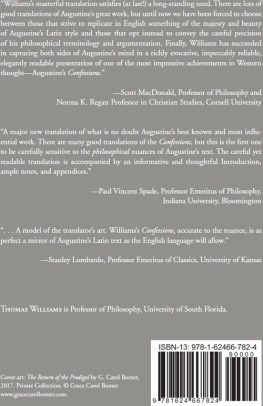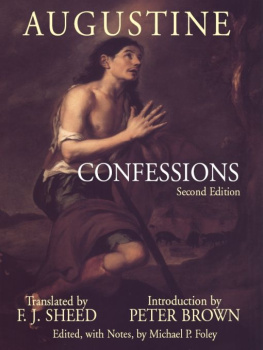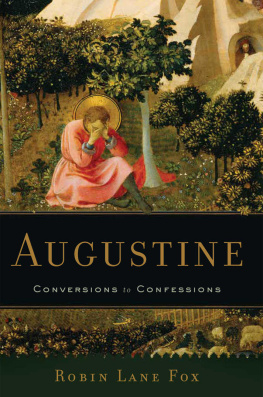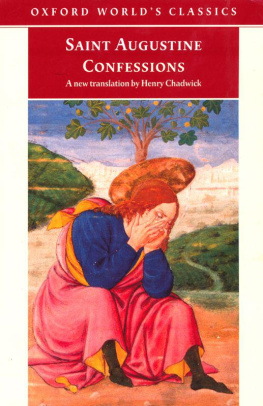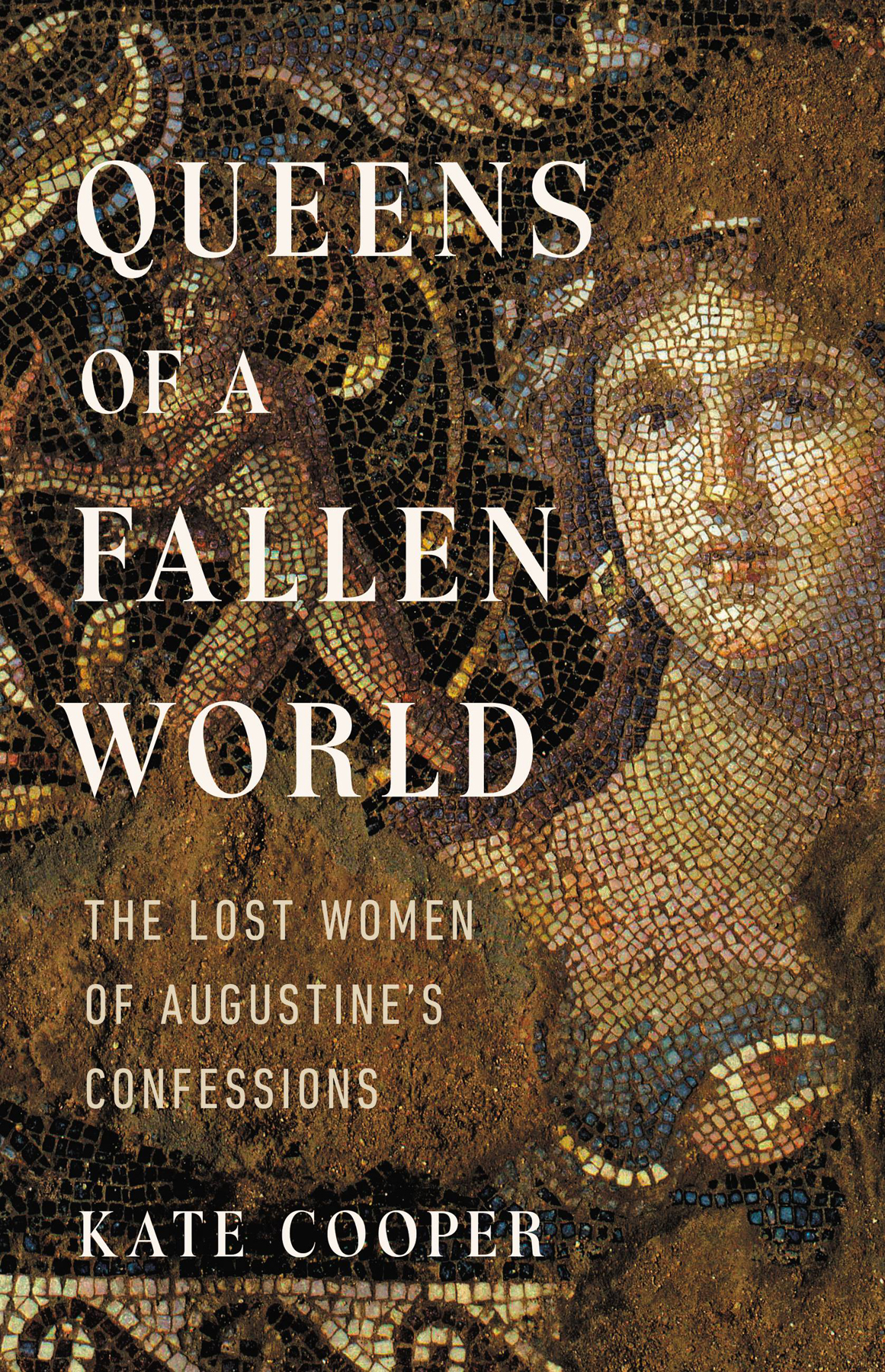What an invigorating book! Cooper asks a haunting question: How different would our world be had this man married either his concubinewho was the loyal mother of his childor the young heiress he was betrothed to, instead of withdrawing from sexual relationships altogether?
Sarah Ruden, translator of Augustines Confessions
Fascinating and well-written, Queens of a Fallen World raises vital questions about the role of women in the founding centuries of Christianity, piecing together a rich backdrop to Augustines life that has rarely emerged before. Cooper convinces us these women can be recovered, and that through his words and thoughts, their lives shaped the future of a fledgling religion. A brilliant new take.
Janina Ramirez, author of Femina: A New History of the Middle Ages, Through the Women Written Out of It
A marvelous achievement. Cooper shines her historians spotlight on an Augustine so vivid in his Confessions , but so often overlooked: a man who loved and appreciated women. But Queens of a Fallen World does far more. Through her portraits of the four women who mattered most during Augustines formative years, Cooper sketches an evocative landscape of the late Roman world in Milan and North Africafrom its courts to its churches, from military encampments to rural villas, from empresses to the enslaved. Above all, hers is a world of human beings suffering heartache and loneliness while trying to reconcile the pull of the heart with the lure of ambition.
Susanna Elm, Sidney H. Ehrman Professor of European History, University of California, Berkeley
Copyright 2023 by Kate Cooper
Cover design by Ann Kirchner
Cover image Zev Radovan / Bridgeman Images
Cover copyright 2023 by Hachette Book Group, Inc.
Hachette Book Group supports the right to free expression and the value of copyright. The purpose of copyright is to encourage writers and artists to produce the creative works that enrich our culture.
The scanning, uploading, and distribution of this book without permission is a theft of the authors intellectual property. If you would like permission to use material from the book (other than for review purposes), please contact permissions@hbgusa.com. Thank you for your support of the authors rights.
Basic Books
Hachette Book Group
1290 Avenue of the Americas, New York, NY 10104
www.basicbooks.com
First Edition: April 2023
Published by Basic Books, an imprint of Perseus Books, LLC, a subsidiary of Hachette Book Group, Inc. The Basic Books name and logo is a trademark of the Hachette Book Group.
The Hachette Speakers Bureau provides a wide range of authors for speaking events. To find out more, go to hachettespeakersbureau.com or email HachetteSpeakers@hbgusa.com.
Basic Books may be purchased in bulk for business, educational, or promotional use. For more information, please contact your local bookseller or the Hachette Book Group Special Markets Department at special.markets@hbgusa.com.
The publisher is not responsible for websites (or their content) that are not owned by the publisher.
Library of Congress Cataloging-in-Publication Data
Names: Cooper, Kate, 1960 author.
Title: Queens of a fallen world : the lost women of Augustines Confessions / Kate Cooper.
Description: First edition. | New York : Basic Books, 2023. | Includes bibliographical references and index. |
Identifiers: LCCN 2022035349 | ISBN 9781541646018 (hardcover) | ISBN 9781541646001 (ebook)
Subjects: LCSH: Augustine, of Hippo, Saint, 354430Family. | Augustine, of Hippo, Saint, 354430Relations with women. | WomenRomeSocial conditions.
Classification: LCC BR65.A9 C595 2023 | DDC 189/.2dc23/eng/20221228
LC record available at https://lccn.loc.gov/2022035349
ISBNs: 9781541646018 (hardcover), 9781541646001 (ebook)
E3-20230228-JV-NF-ORI
For Hildie, with love and admiration
I n Roman Africa, during the last years of Emperor Constantine the Greats long reign, a slave spoke up to criticize her masters daughter. The speaker was not the kind of person who is normally noticed by history, since she had neither wealth, nor power, nor legendary beauty. We know very little about her, only that she was a child. We do not know whether she survived to adulthood.
She may have been one of the many Roman children who did not live to see their tenth birthday. This was common in the Roman world, especially, but not only, among slaves and the poor. In the normal way of things, Illa would have been one of the forgotten people of history. But another child noticed her defiant act of truth telling and grew up to speak of what she learned from her.
We do not know what she was called. The one source that remembers her does so only as ancilla the Latin for a handmaid or female slaveor illa , which simply means she. We will meet her more than once in what follows, and we will speak of her as Illa, letting the unfamiliar Latin form become something like a name.
In the Roman world, people living in slavery did not have legal names. They had informal nicknames, used perhaps by the people who cared for them as children or by those who exploited them when they were old enough to work. A slaves nickname might change with his or her circumstances. A handmaid might be addressed simply as puella (girl) in the same demeaning way that men of color in the Jim Crow South were called boy. A name was a sign of standing, something a slave did not have. But if Illa had no standing, she had a voice. And, perhaps remarkably, she was not afraid to let herself be heard.
Illa would sometimes run errands with the masters free daughter, and in later life the young mistress remembered her as a fierce little person. From Illa she learned a lesson she would carry with her all her life: that sometimes Gods voice speaks through unexpected people. A persons earthly standing does not determine the value of what she or he has to say.
As the daughter of a provincial landowner of modest fortune, the young mistress was also a person who did not expect to be remembered in the historical record. But in the way of things, she grew up to become a mother, and one of her children grew up to become the most influential thinker of Latin Christianity: St. Augustine, bishop of Hippo. The young mistress would find a place in history as St. Monnica, one of the heroines of the early church.
Illa and Monnica grew up together in Roman Numidia, probably in the Tell, the countryside of fertile valleys just south of the coast, in what is now the northeastern corner of Algeria. It was a vast agricultural landscape dotted with rural estates and small communities that, even if they had municipal status, only counted a few thousand souls among their inhabitants. It was not the kind of place where one expected history to be made.
Yet long after she left Africa, Monnica told stories of her childhood to her children and grandchildren, and through her son Augustine, her stories passed into the historical record. They became part of the teachings of Christianity, along with the morals she drew from them. Monnicas childhood companion could not have known that the story of how she challenged her little mistress would be told again and again, across the centuries, to illustrate the idea that we live in a fallen world where the people in power are not always right. This simple insight was central to Augustines mature thought, and it is in many ways Illas legacy.


